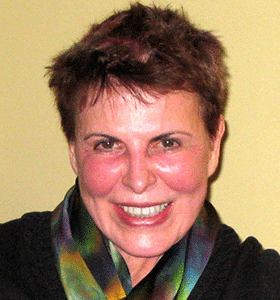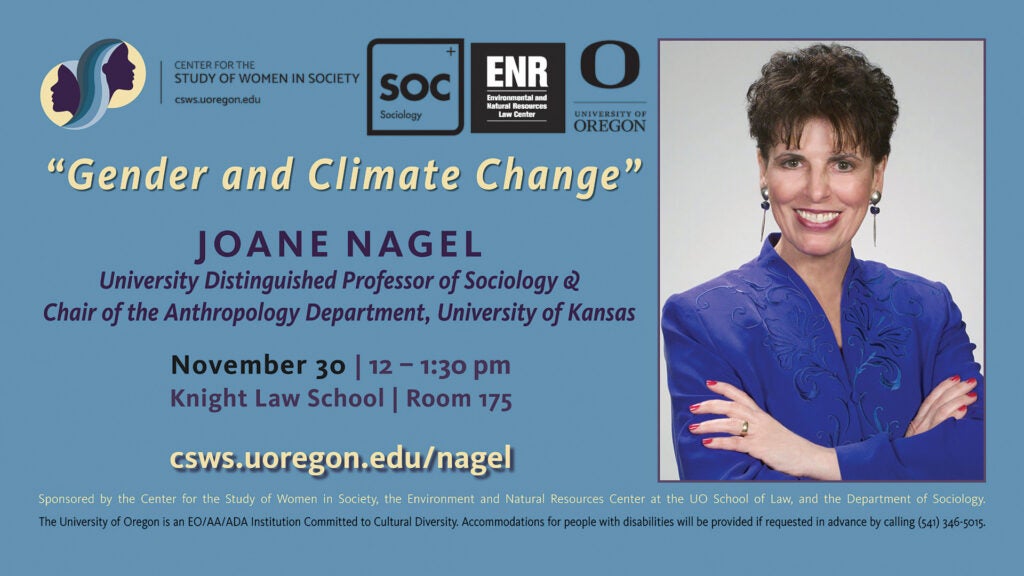
Room 175 Knight Law Center 1515 Agate St.
Gender and Climate Change, a lecture by Joane Nagel
Joane Nagel, University Distinguished Professor of Sociology and Chair of the Anthropology Department at the University of Kansas, is a political and cultural sociologist whose work focuses on ethnicities, genders, and sexualities in the US and the global system and the militarization of gender, science, and global climate change.
A description of Joane Nagel’s book Gender and Climate Change (Routledge, 2016):
“Does gender matter in global climate change? This timely and provocative book takes readers on a guided tour of basic climate science, then holds up a gender lens to find out what has been overlooked in popular discussion, research, and policy debates. We see that, around the world, more women than men die in climate-related natural disasters; the history of science and war are intimately interwoven masculine occupations and preoccupations; and conservative men and their interests drive the climate change denial machine. We also see that climate policymakers who embrace big science approaches and solutions to climate change are predominantly male with an ideology of perpetual economic growth, and an agenda that marginalizes the interests of women and developing economies. The book uses vivid case studies to highlight the sometimes surprising differential, gendered impacts of climate changes.”—from the publisher
In addition to Gender and Climate Change, Nagel’s recent publications include “Men at Work: Scientific and Technological Solutions to the ‘Problem’ of Nature,” Sage Handbook of Nature, ed. T. Marsden, Sage (2018); “The Continuing Significance of Masculinity,” Ethnic & Racial Studies (2017); “Gender, Conflict, and the Militarization of Climate Change,” Peace Review (2015); “Plus Ça Change: Reflections on a Century of Militarizing Women's Sexuality,” European Journal of Women’s Studies (2014); “Climate Change, Public Opinion, and the Military-Security Complex,” The Sociological Quarterly (2011); Race, Ethnicity, & Sexuality: Intimate Intersections and Forbidden Frontiers (Oxford, 2003).
Sponsored by the Center for the Study of Women in Society, and cosponsored by the Environment and Natural Resources Center at the UO School of Law and the Department of Sociology.

